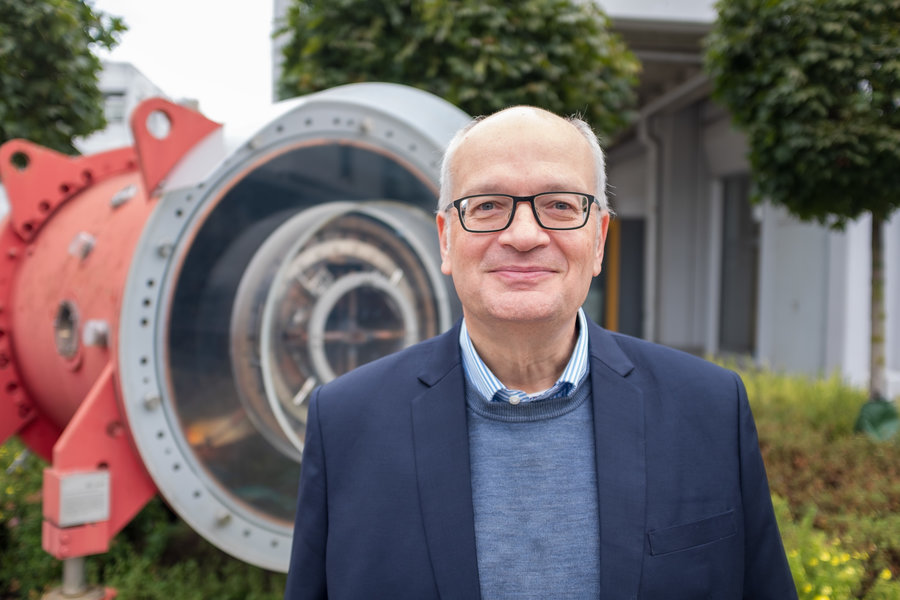Dr. Ralph Aßmann heads accelerator operation and development at GSI/FAIR
28.09.2023 |
GSI/FAIR's business area “Accelerator Operations & Development (ACC)” has a new head: Dr. Ralph Aßmann took over the position on September 1, 2023, and will in future manage GSI's existing accelerator facilities and plan the integration and commissioning of FAIR.
“GSI and FAIR have world-leading accelerator facilities in operation and, with the construction of FAIR, a new international flagship project in the pipeline. After eleven years of working with electron beams, it is therefore a fascinating task for me to return to the world of hadron accelerators, of which there are very few large facilities worldwide,” Aßmann comments his start. “It is my goal to serve the planned user experiments with the existing accelerators in the best possible way, to make the present facilities fit for the future step by step, and, last but not least, to successfully commission the entire GSI/FAIR accelerator complex with the GSI accelerator team. Bringing these tasks together involves various challenges but also new opportunities that I, as head of the business area, will be happy to tackle with the departments and their heads.”
In his work, Aßmann aims to preserve and cultivate what has been tried and tested, while integrating new and innovative approaches. He plans to foster a strengthened collaboration with regional universities to advance accelerator physics and technology and to solve challenges at GSI/FAIR. Examples include the use of advanced methods such as artificial intelligence in accelerator theory and operation, new optimization methods for particle beams, and the development of innovative accelerator structures or instrumentation. Aßmann also plans to collaborate closely on these and other topics within the Helmholtz Association and with other German, European and international partners. “With the observation of neutron star collisions in gravitational wave detectors, which is only now possible, and with innovative approaches in tumor therapy, research with ion accelerators is gaining additional momentum and new potential for discovery, both in basic research and its applications. That's where I'd like to be involved as a scientist.” (CP)
About Dr. Ralph Aßmann:
Ralph Aßmann has obtained his doctorate in physics from the Ludwig-Maximilians-University in Munich. His PhD research was performed at the Max Planck Institute for Physics in Munich and at CERN in the ALEPH experiment on the mass of the Z boson, spin polarized particle beams and precise energy calibration. He then spent almost four years as research associate and staff at Stanford University and SLAC, where he worked on operation, modelling and design of the colliders.
For the next 15 years he worked at CERN in leading roles on the LEP and LHC colliders. He was an LHC machine coordinator in run I of the LHC operation, that led to the discovery of the Higgs boson in 2012. In this role he helped to commission and to optimize the world-leading proton and heavy ion beams of the LHC.
In Summer 2012 he moved as Leading Scientist for Accelerator R&D to DESY, where he researched new, compact accelerators. He was awarded an ERC synergy grant together with three colleagues in 2014. Until a replacement has been identified, Dr. Assmann is the founding coordinator of the EuPRAXIA ESFRI project, a 569 M€ project on building the world-wide first user facility based on plasma-based accelerators that is supported by more than 50 institutes.
He has been the Chair of the Accelerator Group in the European Physical Society from 2020 - 2023, the proposer and initial coordinating PI of the 30 M€ Helmholtz ATHENA project, the leader of several European funding grants and coordinator of the European Network for Novel Accelerators.













